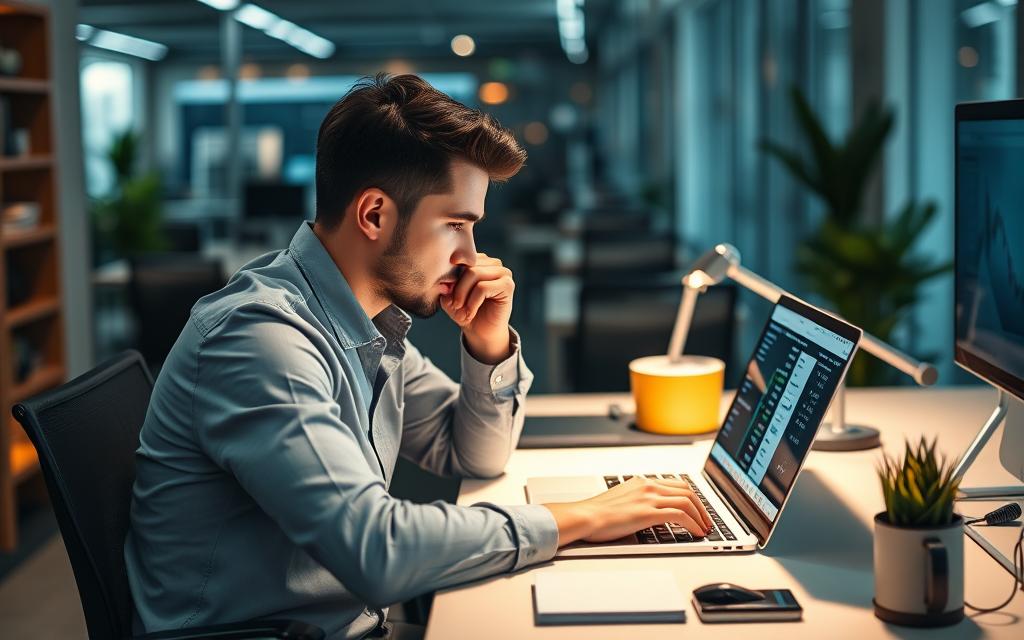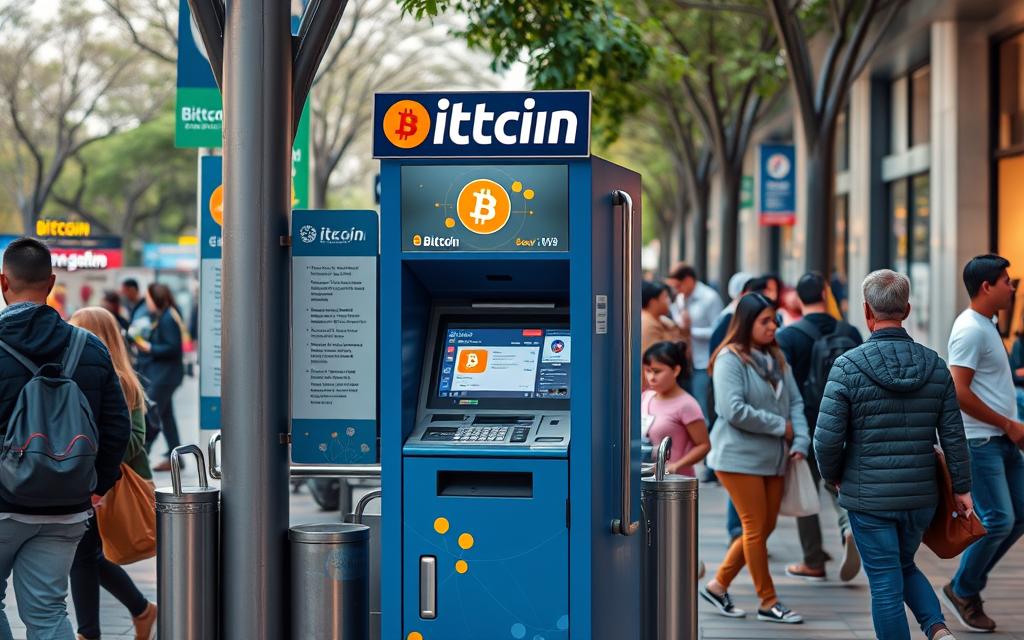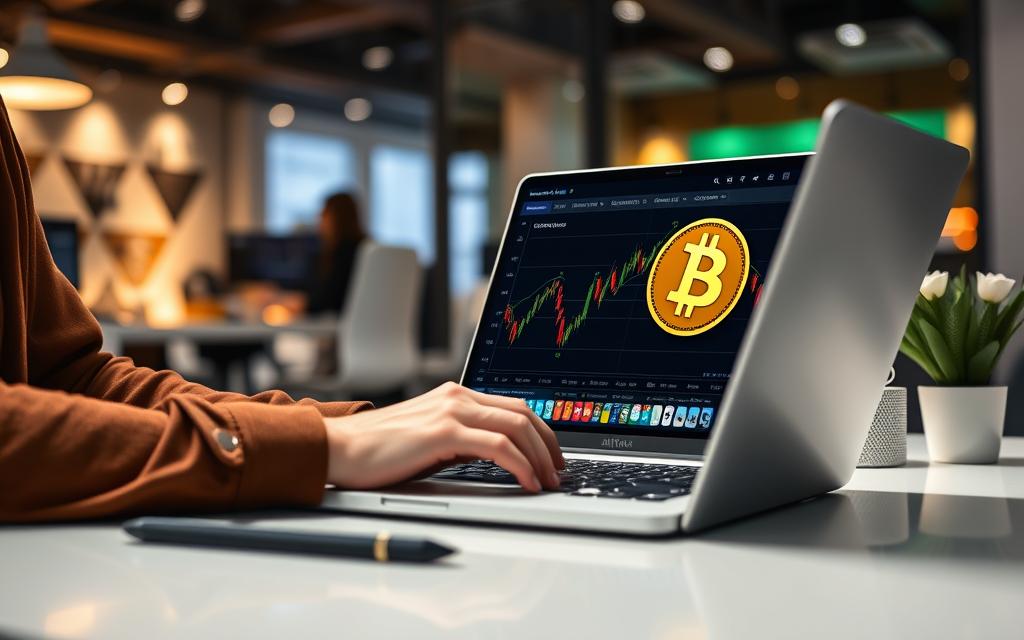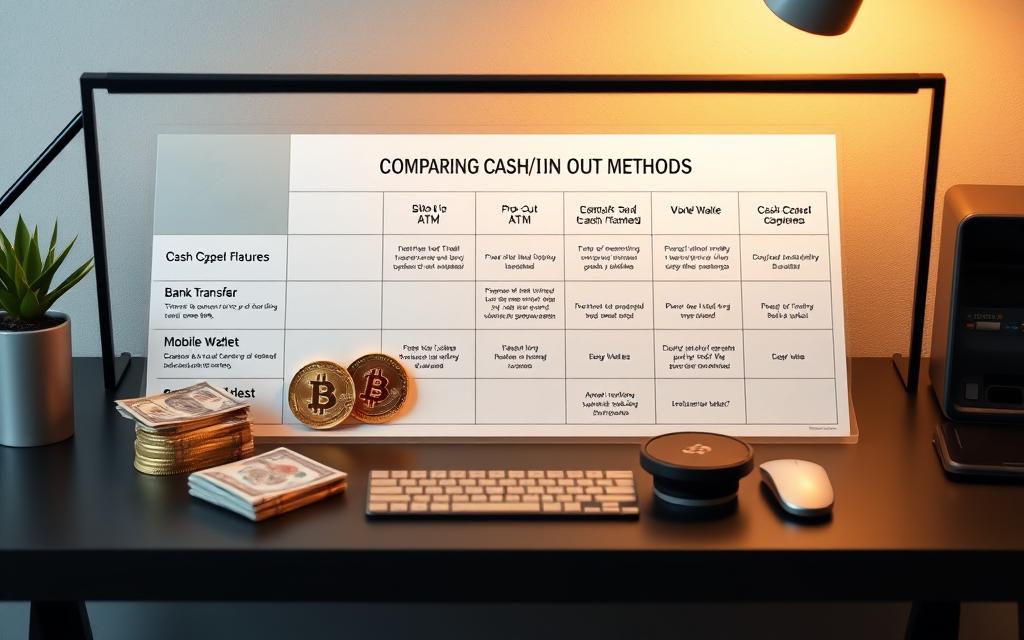Table of Contents
The rising popularity of cryptocurrency has led to a surge in various crypto withdrawal methods, each catering to different needs and preferences.
From exchange platforms and Bitcoin ATMs to peer-to-peer (P2P) platforms and direct wallet transfers, the options are diverse. However, each method comes with its own set of steps, fees, limits, and security considerations.
Understanding the process and implications of each method is crucial for maximizing the value of your crypto when converting it to cash.
This guide will explore the most effective methods for cashing out, providing detailed steps and considerations for a smooth and profitable experience.
Understanding Bitcoin Withdrawals
As the cryptocurrency market continues to evolve, understanding how to effectively cash out Bitcoin becomes increasingly important. Cashing out Bitcoin involves converting your cryptocurrency into a traditional currency, such as the US dollar.
What Does It Mean to Cash Out Bitcoin?
Cashing out Bitcoin means selling your Bitcoin holdings for a traditional currency. This process can be done through various platforms, including cryptocurrency exchanges, Bitcoin ATMs, and peer-to-peer transactions. The choice of platform can significantly affect the fees and transaction times.
Why You Might Want to Cash Out Your Bitcoin
Investors may choose to cash out their Bitcoin for several reasons, including taking profits during a high market price, diversifying their investment portfolio, or needing liquidity for other financial obligations. It’s crucial to consider the tax implications of such a transaction, as it may be subject to capital gains tax.
Key Considerations Before Cashing Out
Before initiating a withdrawal, it’s essential to consider several factors, including transaction fees, security measures of the platform, and any withdrawal limits. Ensuring that you’re using a reputable and secure service is paramount to protecting your funds.
| Factor | Description | Importance |
|---|---|---|
| Transaction Fees | Fees associated with the transaction, varying by platform | High |
| Security Measures | Platform’s security protocols to protect user funds | High |
| Withdrawal Limits | Maximum amount that can be withdrawn at once | Medium |
| Tax Implications | Potential tax obligations resulting from the withdrawal | High |
How to Cash Out Bitcoin Using Cryptocurrency Exchanges

Cryptocurrency exchanges provide a platform for users to cash out their Bitcoin holdings, but the process can vary depending on the exchange and withdrawal method chosen. To cash out Bitcoin, users typically need to follow a series of steps, which are outlined below.
Step-by-Step Process for Exchange Withdrawals
The process of cashing out Bitcoin on an exchange involves several key steps. First, users must log in to their account and navigate to the withdrawal section. From there, they select the Bitcoin wallet they wish to withdraw from and enter the amount they want to cash out. The exchange will then provide instructions on how to complete the withdrawal, which may involve confirming the transaction via email or 2FA.
Popular Exchanges for Bitcoin Cash Outs
Some of the most popular cryptocurrency exchanges for cashing out Bitcoin include well-established platforms that offer competitive fees and reliable service. These exchanges often have a user-friendly interface and provide a range of withdrawal options, including bank transfers and wire transfers.
Fees and Processing Times
When cashing out Bitcoin on an exchange, users should be aware of the fees involved, which can include both the exchange’s service fee and the blockchain network fee. The processing time for withdrawals can vary significantly, ranging from near-instantaneous for premium services to several business days for standard bank transfers. Factors such as network congestion, the exchange’s processing policies, and the chosen withdrawal method can all impact the overall processing time.
Using Bitcoin ATMs for Instant Cash

For those seeking immediate access to cash, Bitcoin ATMs offer a convenient solution. Bitcoin ATMs are designed to enable users to quickly exchange their cryptocurrency for physical money.
How Bitcoin ATMs Work
Bitcoin ATMs are machines that allow users to insert cash and receive Bitcoin or withdraw cash by sending Bitcoin to a specific wallet address. They operate similarly to traditional ATMs but are designed for cryptocurrency transactions. Most Bitcoin ATMs require users to verify their identity to comply with anti-money laundering regulations.
Finding and Using a Bitcoin ATM
To find a Bitcoin ATM near you, users can utilize online directories or mobile apps that map ATM locations. Once a nearby ATM is located, users can follow the on-screen instructions to complete their transaction. It’s essential to choose an ATM operated by a reputable company to ensure secure transactions.
ATM Withdrawal Limits and Fees
Most Bitcoin ATMs impose withdrawal limits, typically ranging from $500 to $3,000 per day, to comply with regulations and mitigate fraud risks. Users can often increase these limits by completing identity verification steps. Fee structures at Bitcoin ATMs generally include a percentage-based commission (typically 7-12%) plus a potential flat fee, making them more expensive than exchange-based withdrawal methods.
Users should be aware of the fees and limits associated with Bitcoin ATMs before making a transaction. Some operators offer loyalty programs or reduced fees for frequent users, which can make them more cost-effective for regular transactions.
Peer-to-Peer (P2P) Platforms for Bitcoin Cash Outs

Peer-to-Peer (P2P) platforms offer a direct method for selling Bitcoin, connecting buyers and sellers without intermediaries. This method allows for potentially better exchange rates and more control over the transaction process.
How P2P Bitcoin Sales Work
P2P Bitcoin sales involve connecting buyers and sellers directly through a platform. These platforms often use escrow services to protect both parties by holding the Bitcoin until payment is confirmed.
Popular P2P Platforms
Some of the most popular P2P platforms for Bitcoin include LocalBitcoins and Paxful. These platforms provide a space for buyers and sellers to negotiate terms and complete transactions securely.
Security Tips for P2P Transactions
To ensure a secure transaction, it’s crucial to use the platform’s built-in escrow service and to thoroughly vet potential trading partners. Always communicate through the platform’s messaging system and be cautious of common scams.
- Always utilize the platform’s built-in escrow service for P2P Bitcoin transactions.
- Thoroughly research potential trading partners by examining their transaction history and reputation scores.
- Communicate exclusively through the platform’s messaging system.
- For high-value transactions, consider breaking the sale into smaller amounts to minimize risk.
- Be vigilant about common scams, such as fake payment confirmations.
Direct Wallet-to-Bank Transfers

Direct wallet-to-bank transfers offer a straightforward method for cashing out Bitcoin. This process allows users to transfer their Bitcoin directly to their bank accounts, providing a convenient way to access their funds.
Services That Offer Direct Transfers
Several services facilitate direct wallet-to-bank transfers, including online platforms and financial services. These services typically support various banks and offer competitive fees for the transaction. Some popular services include specialized cryptocurrency exchanges and financial institutions that cater to cryptocurrency users.
Step-by-Step Transfer Process
The process involves linking your Bitcoin wallet to the service, initiating the transfer, and confirming the transaction. Users must provide their bank details and comply with any verification requirements. The service then handles the conversion of Bitcoin to fiat currency and initiates the bank transfer.
Fees and Processing Times
Fees for direct wallet-to-bank transfers vary between services, typically ranging from 1-3% of the transaction amount plus a small fixed fee. Processing times generally take 1-3 business days, depending on the service and the receiving bank. Some services offer expedited processing for an additional fee.
Using Broker Services to Cash Out Bitcoin

Broker services offer a streamlined way to convert Bitcoin into fiat currency. These services act as intermediaries, facilitating transactions between buyers and sellers, and often provide a more straightforward and secure experience compared to other methods.
How Broker Services Work
Broker services connect buyers and sellers, enabling the exchange of Bitcoin for traditional currencies. They often provide user-friendly platforms that simplify the process, making it accessible even to those new to cryptocurrency. By leveraging their expertise and network, brokers can offer competitive rates and efficient transactions.
Advantages of Using a Broker
Using a broker service for cashing out Bitcoin comes with several advantages. These include enhanced security measures to protect transactions, competitive fees, and personalized support. Brokers also often provide user-friendly interfaces, making it easier for users to navigate the process.
Popular Bitcoin Brokers
Several broker services have gained recognition for their reliability and service quality. Some of the notable ones include:
- eToro – Known for its competitive fees and robust security measures.
- Coinmama – Offers simplicity and accessibility, popular among new users.
- Gemini – Combines institutional-grade security with personalized support.
- BitPanda – Provides seamless Bitcoin-to-fiat conversions with multiple withdrawal options.
- River Financial – Focuses exclusively on Bitcoin, offering dedicated broker assistance with an emphasis on security and privacy.
Converting Bitcoin to Gift Cards

Converting Bitcoin to gift cards is a convenient way to spend cryptocurrency in the real world. This method allows users to utilize their Bitcoin for purchases at popular retailers, both online and offline.
Platforms That Accept Bitcoin for Gift Cards
Several platforms facilitate the conversion of Bitcoin to gift cards. These include services like Bitrefill, eGifter, and Gyft, which partner with major retailers to offer a wide range of gift card options. When selecting a platform, users should consider factors such as fees, limits, and the availability of gift cards for their preferred retailers.
Process and Limitations
The gift card conversion process typically involves selecting the desired retailer and card value, then initiating a Bitcoin payment from your wallet to the service’s address. Most platforms implement verification steps for larger transactions, which may require email confirmation or identity documentation. Additionally, gift card conversions generally have lower transaction limits compared to exchange withdrawals, ranging from $500 to $2,000 per day, depending on the service and verification level. Users should also be aware of potential fees, which can vary between platforms.
Understanding Fees When Cashing Out Bitcoin
Understanding the fees associated with cashing out Bitcoin is crucial for maximizing your returns. The fees can vary significantly depending on the method chosen, and being aware of these costs can help you make informed decisions.
Types of Fees to Expect
When cashing out Bitcoin, you can expect various types of fees depending on the service or method used. For instance, cryptocurrency exchanges typically charge between 0.5% to 3.5% of the transaction amount. It’s essential to understand these fees to minimize their impact.
- Cryptocurrency exchanges: 0.5% to 3.5%
- Bitcoin ATMs: 7% to 15%
- Peer-to-peer platforms: 0.5% to 1% (platform fees)
- Broker services: 1% to 7%
- Direct wallet-to-bank services: 1% to 4%
How to Minimize Fees
To minimize fees when cashing out Bitcoin, it’s crucial to choose the right method. Using cryptocurrency exchanges or P2P platforms can often result in lower fees compared to other methods. Additionally, being mindful of the transaction timing and volume can help reduce costs.
“The key to minimizing fees is to understand the fee structures of different services and to choose the one that best aligns with your needs.”
Comparing Fee Structures Across Methods
Different methods for cashing out Bitcoin have distinct fee structures. The table below summarizes the typical fees associated with various methods:
| Method | Typical Fees |
|---|---|
| Cryptocurrency Exchanges | 0.5% – 3.5% |
| Bitcoin ATMs | 7% – 15% |
| Peer-to-Peer Platforms | 0.5% – 1% (platform fees) |
| Broker Services | 1% – 7% |
| Direct Wallet-to-Bank Services | 1% – 4% |
By comparing these fee structures, you can select the most cost-effective method for your Bitcoin cash out.

Security Considerations for Bitcoin Withdrawals
Securing your Bitcoin withdrawal process is crucial in safeguarding your cryptocurrency from various risks. As the popularity of Bitcoin continues to grow, so does the importance of protecting your digital assets during cash out transactions.
Protecting Your Wallet
To protect your wallet during cash outs, it’s vital to conduct transactions on secure, private networks rather than public Wi-Fi, reducing the risk of man-in-the-middle attacks or network eavesdropping. Always double-check all wallet addresses before confirming transactions, as malware can silently replace cryptocurrency addresses with those controlled by attackers.
Avoiding Scams and Fraud
Avoiding scams and fraud requires vigilance and best practices. Maintain separate wallets for different purposes, using a dedicated withdrawal wallet with limited funds rather than accessing your primary storage wallet for cash out transactions. This strategy can help minimize potential losses in case of a security breach.
Best Practices for Secure Transactions
For secure transactions, document all transactions with screenshots and confirmation numbers, providing evidence that may prove valuable if disputes arise or technical issues occur during the cash out process. Additionally, limit the information you share about your cryptocurrency holdings and cash out activities, as this information can make you a target for both online and physical security threats.
By following these security considerations, you can significantly enhance the safety of your Bitcoin withdrawals. As emphasized by security experts, “The key to secure cryptocurrency transactions lies in a combination of using the right tools and being mindful of your online presence.”
Tax Implications of Cashing Out Bitcoin

Tax obligations arise when Bitcoin is cashed out, and it’s essential to comprehend these implications to avoid any legal or financial repercussions. The IRS considers Bitcoin as property for tax purposes, which means that transactions involving Bitcoin are subject to capital gains tax.
How Bitcoin Cash Outs Are Taxed in the US
In the United States, the IRS treats Bitcoin as property, not currency. This classification means that capital gains tax applies to Bitcoin transactions. The tax rate depends on whether the gain is considered long-term or short-term, based on how long the Bitcoin was held.
Record-Keeping for Tax Purposes
Maintaining detailed records of all cryptocurrency transactions is crucial for accurate tax reporting. This includes dates of acquisition and sale, amounts, and the value of Bitcoin in USD at the time of the transaction. Organized records help in calculating gains or losses and ensuring compliance with tax laws.
Working with Tax Professionals
It’s advisable to consult with tax professionals who specialize in cryptocurrency taxation. They can provide guidance on tax-efficient strategies, such as timing considerations and loss harvesting. Ensure your tax advisor uses cryptocurrency-specific tax software to handle complex situations accurately.
Timing Your Bitcoin Withdrawals for Maximum Value
Maximizing the value of your Bitcoin withdrawals requires a strategic approach to timing. The cryptocurrency market is known for its volatility, and Bitcoin is no exception. Understanding when to cash out can significantly impact the value you receive.
Monitoring Bitcoin Price Trends
To time your Bitcoin withdrawals effectively, it’s essential to monitor price trends. This involves keeping an eye on historical data, market capitalization, and volume indicators. CoinGecko and CoinMarketCap are valuable resources for this information, providing comprehensive price tracking.
Strategies for Optimal Timing
Several strategies can help you time your Bitcoin withdrawals optimally. One approach is to use technical analysis to identify potential market trends. Another is to set price alerts to notify you of significant price movements. This proactive approach enables you to make informed decisions about when to cash out.
Tools for Tracking Bitcoin Value
Various tools are available to help track Bitcoin’s value. Portfolio tracking applications like Blockfolio (now FTX) and Delta allow users to monitor their Bitcoin holdings alongside market movements. Exchange-based tools on platforms like Binance and Coinbase offer advanced charting features. Additionally, mobile price alert applications and technical analysis platforms like TradingView provide sophisticated charting tools and community insights.
| Tool | Features | Platform |
|---|---|---|
| CoinGecko | Comprehensive price tracking, historical data | Web |
| Blockfolio (FTX) | Portfolio tracking, market movement alerts | Mobile/Web |
| TradingView | Technical analysis, community insights | Web |
![]()
By leveraging these tools and strategies, you can make more informed decisions about when to cash out your Bitcoin, potentially maximizing the value of your withdrawals.
Comparing Bitcoin Cash Out Methods
The process of converting Bitcoin to cash can be achieved through various channels, differing in speed, cost, and security. Understanding these differences is crucial for users to make informed decisions based on their priorities.
Speed vs. Cost Comparison
Different cash-out methods offer varying balances between speed and cost. For instance, Bitcoin ATMs provide instant cash but often at higher fees, while regulated cryptocurrency exchanges may offer lower fees but require more time for processing. Peer-to-peer platforms can also vary in speed and cost, depending on the counterparty and the terms of the transaction.

Security vs. Convenience Comparison
Users must weigh the trade-offs between security and convenience when choosing a cash-out method. Regulated exchanges and broker services offer robust security features, including insurance and verification processes, but may require more extensive user verification. In contrast, Bitcoin ATMs and peer-to-peer platforms offer more convenience and potentially less stringent verification processes, but users must be cautious of potential security risks.
- Regulated cryptocurrency exchanges offer strong security infrastructure but require lengthy identity verification.
- Bitcoin ATMs provide convenience with minimal technical knowledge required but may have security vulnerabilities.
- Peer-to-peer platforms maximize user control and privacy but shift security responsibility to the user.
- Broker services combine convenience with security but charge premium fees.
- Direct wallet-to-bank transfers balance security and convenience, leveraging existing banking infrastructure.
Conclusion
The Bitcoin cash out process has simplified, providing users with multiple avenues. Various methods cater to different needs, whether prioritizing speed, cost-efficiency, or security. As the cryptocurrency ecosystem matures, withdrawal options expand, including innovations in direct spending and crypto-backed loans. Users must maintain strong security practices, understand fees, and consider tax implications for successful transactions. With growing mainstream acceptance, cashing out Bitcoin becomes easier, bridging the gap between digital assets and traditional cash.
FAQ
What are the most popular methods for cashing out Bitcoin?
The most popular methods include using cryptocurrency exchanges, Bitcoin ATMs, peer-to-peer (P2P) platforms, direct wallet-to-bank transfers, and broker services.
How do I choose the best method for cashing out my Bitcoin?
Consider factors such as fees, processing times, security, and convenience when selecting a method. Compare the features of different options to determine which one best suits your needs.
Are there any fees associated with cashing out Bitcoin?
Yes, fees can vary depending on the method used. Exchanges, ATMs, and broker services often charge fees for transactions. Be sure to review the fee structure before proceeding.
How long does it take to cash out Bitcoin using a cryptocurrency exchange?
Processing times can range from a few minutes to several days, depending on the exchange and the withdrawal method. Some exchanges offer faster processing for an additional fee.
Can I cash out Bitcoin directly to my bank account?
Yes, some services offer direct wallet-to-bank transfers. This method can be convenient, but be aware of potential fees and processing times.
What are the tax implications of cashing out Bitcoin in the US?
Bitcoin cash outs are subject to taxation. It’s essential to keep accurate records of transactions and consult with a tax professional to ensure compliance with tax regulations.
How can I minimize fees when cashing out Bitcoin?
Compare fee structures across different methods and choose the one with the lowest fees. Consider using exchanges or broker services that offer competitive rates.
What security measures should I take when cashing out Bitcoin?
Protect your wallet by using strong passwords, enabling two-factor authentication, and monitoring transactions. Be cautious of scams and fraudulent activities.
Can I cash out Bitcoin to a gift card?
Yes, some platforms allow you to convert Bitcoin to gift cards. This method can be convenient, but be aware of potential limitations and fees.
How do I track the value of my Bitcoin?
Utilize tools and platforms that provide real-time price tracking and market analysis to monitor the value of your Bitcoin.









